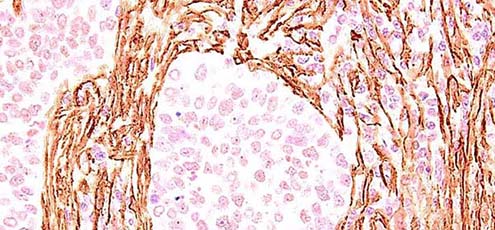
Seminar “Mechanobiology of lung fibroblasts in normal and diseased conditions”
Date
Monday, 22nd June 2015
Time
12:00 am
Place
University of Barcelona
Faculty of Physics Building
Room 3.20, 3rd floor
Speaker
Dr Jordi Alcaraz, University of Barcelona (Spain)
Abstract
In normal conditions our bodies preserve the elasticity of each tissue to carry out its specific functions. In contrast, normal tissue elasticity becomes chronically compromised in “mechanopaties†in which tissues become either too stiff (as in cancer and fibrosis) or too soft (as in arthritis or emphysema). Previous studies reported by us and others support that normal tissue elasticity is essential to sustain tissue functions, whereas a chronic loss of normal tissue elasticity is required for the progression of mechanopaties. This dependence on abnormal tissue elasticity is remarkable because it raises the possibility of developing therapeutic strategies aiming to rescue normal tissue mechanobiology.
As a benchmark to test this hypothesis we have used two biomedically challenging lung diseases: non-small cell lung cancer (NSCLC) and idiophatic pulmonary fibrosis (IPF). Of particular interest for the mechanobiology of these diseases are the activated stromal fibroblasts or myofibroblasts, since there is solid evidence that they are key effector cells in the abnormal tissue hardening and overall progression of these pathologies.
I will discuss the strategies that we have used to unravel the relationship between tissue hardening, myofibroblast misbehavior and disease progression in NSCLC and IPF, and will show some of our most recent findings in this field.


